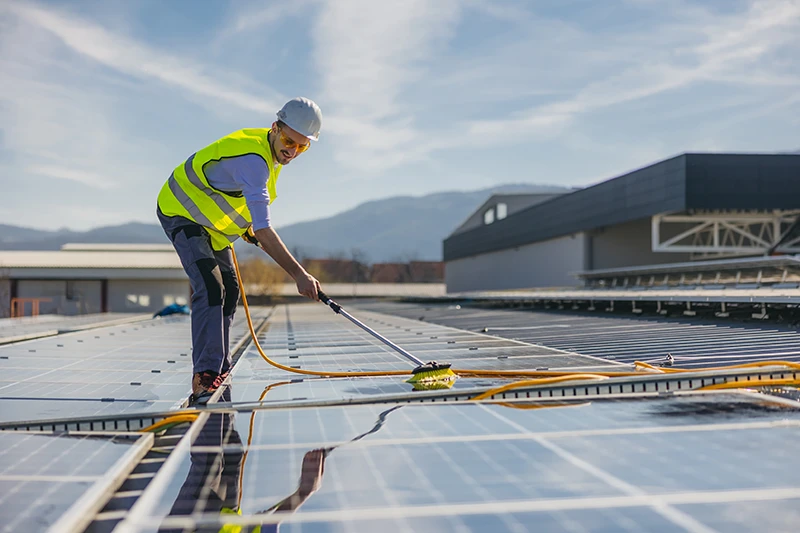‘The required cleaning frequency varies depending on where the solar system is used. The weather conditions and the type of soiling also play a role. In dusty areas or in areas with high levels of dirt, more frequent cleaning may be necessary, for example in the area around a cement factory,’ explains Markus Geßner, Marketing and Sales Manager at Emil Otto GmbH.
Cleaning the solar modules is important in order to achieve optimum performance. At the same time, the wrong cleaning agents can cause considerable damage. Aggressive chemicals or abrasive cleaning agents can scratch or corrode the sensitive surfaces of the modules. ‘Similar to window glass, which can become milky if the wrong cleaning agents are used, a solar module loses power as soon as the surface is damaged,’ explains Geßner. This not only reduces light transmission, but also damages the module’s protective layer, which can lead to long term damage.
Hard brushes or sharp objects can also scratch the surface. It is therefore essential to use gentle cleaning agents and soft tools to preserve the functionality of the PV modules and ensure their long term efficiency. ‘We have no control over how the cleaning medium is applied. However, we can provide cleaners that ensure the gentle removal of dirt, at least on the chemical side,’ emphasizes Geßner. Emil Otto GmbH has a range of cleaners for PV systems that can be used depending on the type and nature of soiling.
These cleaners are produced with alkaline-mild, acid-mild, pH-neutral or oxygen-active, alkaline cleaning formulations and are used depending on the type of soiling. The cleaners are generally VOC-free and dissolve even the most stubborn deposits such as salt stains, limescale and lime compounds, soot, dust, pollen, lichen, moss, mould and algae. ‘It is important to use the right cleaner for the type of soiling in order to avoid damage to the solar modules due to improper use,’ continues Geßner.
The optimum efficiency of the solar module is recovered through cleaning. Emil Otto cleaners leave no greasy residues that stick together and harden due to UV radiation and are gentle on the system and other materials used. They are also not aggressive towards electronic components.

